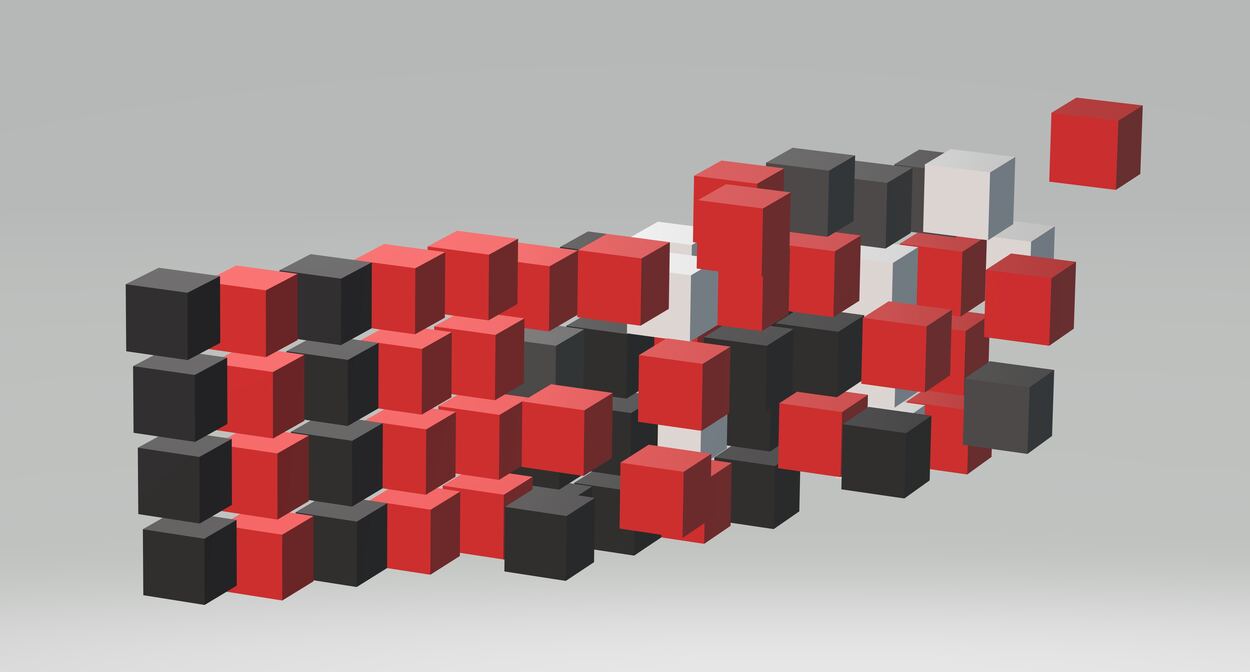
Introduction
Ever heard of iPaaS? Chances are, you know it by one of its other aliases: integration-platform-as-a-service or integration platform. But what is it, and why should you care? In short, iPaaS is a type of cloud computing service for setting up integrations between different software applications. It’s becoming increasingly popular as enterprises look for ways to streamline and automate their data flow processes. The newest development in iPaaS technology is vertical iPaaS, which serves to simplify the process even further. In this article, we’ll explore what makes vertical iPaaS different from its traditional counterpart, the benefits it offers, and how you can make the most out of this new technology.What Is iPaaS and Why Do Businesses Need It?
 Do you want to keep up with the competition in today’s ever-changing, digital world? Then you need to integrate your processes and applications— that’s where iPaaS comes in!
iPaaS (Integration Platform as a Service) is an innovative cloud-based platform that helps businesses connect, orchestrate and manage different software applications, databases or services.
This makes it easier for organizations to leverage data from multiple sources and create automated workflows.
Using iPaaS, businesses can create secure and reliable integrations without sacrificing speed or efficiency.
It also helps reduce development time by providing a suite of pre-built integrations, connectors, templates and coding tools.
Moreover, it’s designed to scale as your organization grows, making it easy for you to rapidly innovate without having to re-architect or re-build your infrastructure.
In other words, iPaaS makes it easier for businesses of all sizes—from startups to large enterprises—to quickly tap into the digital opportunities of today’s world.
With robust and cost-effective integration capabilities at their fingertips, organizations can revolutionize the way they work and drive growth more efficiently than ever before!
Do you want to keep up with the competition in today’s ever-changing, digital world? Then you need to integrate your processes and applications— that’s where iPaaS comes in!
iPaaS (Integration Platform as a Service) is an innovative cloud-based platform that helps businesses connect, orchestrate and manage different software applications, databases or services.
This makes it easier for organizations to leverage data from multiple sources and create automated workflows.
Using iPaaS, businesses can create secure and reliable integrations without sacrificing speed or efficiency.
It also helps reduce development time by providing a suite of pre-built integrations, connectors, templates and coding tools.
Moreover, it’s designed to scale as your organization grows, making it easy for you to rapidly innovate without having to re-architect or re-build your infrastructure.
In other words, iPaaS makes it easier for businesses of all sizes—from startups to large enterprises—to quickly tap into the digital opportunities of today’s world.
With robust and cost-effective integration capabilities at their fingertips, organizations can revolutionize the way they work and drive growth more efficiently than ever before!
The Rise of Vertical iPaaS Solutions
As the concept of Integration as a Service (IaaS) continues to gain traction in businesses of all sizes, there’s been a shift towards the development of highly specialized vertical solutions. This movement towards vertical iPaaS solutions is transforming industry-specific operations, tailored technologies, and long-term customer relationships. Vertical iPaaS solutions are designed to provide organizations with an easier and cost-effective way to integrate complex data flows across their individual applications and systems. By leveraging purpose-built applications, businesses are able to quickly streamline their processes and make better use of their time, resources, and money. Some of the most promising benefits of vertical iPaaS solutions include greater automation, improved data insights, increased security and compliance standards, better customer service levels and faster time to market. As companies continue to realize the power of integration as a service, more industries are turning towards these specialized solutions—developing cutting edge technology that can help push their business operations into the future.iPaaS Use Cases Across Industries
If you’ve heard of iPaaS, you might be wondering: what can it do? The answer is, iPaaS can do A LOT! Vertical iPaaS use cases span multiple industries, from healthcare to retail and more. Let’s look at a few examples:Healthcare
In healthcare, integration solutions are needed to make sure patient records are stored safely and securely. With vertical iPaaS, healthcare organizations can easily integrate data from various sources—like Electronic Medical Records (EMRs), Patient Health Records (PHRs) and lab test results—for improved data accessibility and collaboration between providers. This helps keep patient records up-to-date and accurate, so patients get the best care possible.Retail
Retailers deal with a lot of data from multiple sources as well. If a customer interacts with your brand as both an online buyer and in-store shopper, vertical iPaaS enables you to unify customer information across channels for a better picture of your customers’ behavior. This helps retail businesses analyze trends in customer service data and product returns, so they can improve their services accordingly. These are just two examples of how vertical iPaaS is changing the way businesses operate across different industries. With its cloud-based scalability, it provides organizations with the agility they need to quickly adapt to changing market conditions while reducing costs by streamlining integration processes.The Benefits of Vertical iPaaS
 When it comes to getting the most out of your integration, using a Vertical iPaaS can offer several distinct advantages.
Here are some of the top benefits it offers:
When it comes to getting the most out of your integration, using a Vertical iPaaS can offer several distinct advantages.
Here are some of the top benefits it offers:
Increased Security & Performance
Vertical iPaaS is designed to provide greater security and performance than traditional integration solutions. Because of the specialized nature of these services, you can be sure that your data is more secure and reliable than ever before. This makes Vertical iPaaS the ideal option for organizations that need to protect sensitive information while also benefiting from increased performance and scalability in their integrations.Improved Ease of Use
Another benefit of Vertical iPaaS is its user-friendly interface. Since it’s tailored for specific industries, the software will be simpler to use and understand, allowing users to quickly process data or access information that’s relevant to their business operations. This makes it easier and faster for organizations to access the insights they need without having to learn complicated programming languages or techniques.Cost Savings
By leveraging Vertical iPaaS, businesses are able to save money in several ways. First, they can cut down on IT costs because they’re not paying for maintenance and upkeep since the service provider handles all that. Additionally, since businesses can pay on a per-use basis, they’re only paying for what they need when they need it—which can be significantly less expensive than buying an entire suite of integration solutions up front.How to Evaluate an iPaaS Platform
 When considering an integration as a service (iPaaS) platform, there are a few key criteria to evaluate.
It’s important to understand the capabilities and limitations of the platform you’re researching, ensuring that it meets your specific needs. Here are a few things to consider when evaluating iPaaS platforms:
When considering an integration as a service (iPaaS) platform, there are a few key criteria to evaluate.
It’s important to understand the capabilities and limitations of the platform you’re researching, ensuring that it meets your specific needs. Here are a few things to consider when evaluating iPaaS platforms:
Hosting Options
The iPaaS hosting environment will depend on how much control you want over your workflow, security, and other factors. Depending on the provider, you may be able to operate in a public cloud (AWS/GCP/Azure/etc.), private cloud or on-premises setup.Scalability
Evaluate the platform’s scalability capabilities. In other words, can it grow and scale to meet your organization’s future needs? Does it offer automated scalability or does it need manual intervention?Security
Security is obviously paramount when evaluating an iPaaS platform. Make sure that the data is encrypted end-to-end between the device and the cloud instance where your application will be hosted. Additionally, look into user roles and account management, as well as data filtering capabilities.Data Interfaces
Make sure that the platform you choose supports all of your data sources—whether they’re web services, databases or existing third-party applications—and provides powerful data manipulation tools such as transformations so you can modify data before passing it into cloud applications. Additionally, make sure it supports popular formats like JSON and XML for both inbound and outbound integration with [cloud applications] or APIs. Finally, keep in mind that aside from technical performance capabilities, evaluating customer support can go a long way towards making5 Trends That are Changing the Face of iPaaS
 What might the future of iPaaS look like? Well, the possibilities are exciting!
What might the future of iPaaS look like? Well, the possibilities are exciting!